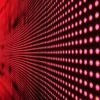The new decade is already two months in, and people have started planning ahead for the ten years to come. From lifestyle choices to entertainment and career choices and goals, everything is on a shift to become more modern and efficient. So talking about career, probably the most attractive these days circulating the adult Millennials, is that of a data scientist.
As one of the most demanded career choices with no lowering at any point in the years gone by, learning data science can be intimidating, to say the least. According to studies published, it has been found that a worldwide 28% more requirement is there of data scientists. So it can easily be said that a career in data science will only increase as 2020 nears its end.
But as much as learning data science can revolutionize your career, a great job won’t walk past you on the street. There are many skills, time, and effort required to master in order to get the right job for you.
10 Skills that will help you as a Data Scientist
Here are the ten major skills that, when acquired, will take our overall skill set up a notch to help you find the right job that pays well for all your knowledge and expertise.
- Choose a language tool
Pursuing any career should be with a complete experience. But the real question many students face when starting off is how and where, to begin with all this. The easiest way though is to select a language tool when commencing with your data scientist career path and to stick to it throughout. You can start with the most basic and mainstream language tool you can find. All these tools are mainly used for implementation purposes. However, understanding the core concept is more important. To narrow this down, it is recommended to start with a language that you are familiar with. Being well versed in coding is not a necessity as of now because you are a big data beginner. So you can start with a GUI based tool and then grasp the concepts further down your career advancement.
- Data Cleaning
Also known as data cleansing, data cleaning is the process of identifying and rectifying corrupt or incorrect records from a record data set, table, or database. It mainly refers to the identification and then replacement of inaccurate and irrelevant parts of data. Complete removal or cleansing of a coarse or dirty data set may also come under data cleaning as it is performed by interactive data wrangling tools such as batch processing through scripting. It is a highly regarded skill for a data analyst as they are expected to do data mining from deep insights of collected data instead of predicting results through machine learning.
- Data Visualization
Data visualization, as its name suggests, is a visual graphical representation of information and data. Understanding current trends and trend patterns in data becomes easier using pie charts, graphs, and maps to aid an accessible way to analyze them. We are currently in the midst of the digital age, and the world comprises of massive databases because now everything happens on the cloud. Therefore, having a data scientist that can efficiently convert and crunch as well as analyze those numbers into graphs and dot maps, highlighting current data trends and patterns, is a valuable asset to the organization.
- Probability & Statistics
Statistics is one of those few fields that are so broad that they take up applications in every industry. According to the definition given on Assignment Help, “It is the study of the collection, analysis, interpretation, presentation, and organization of data.” Therefore it shouldn’t be shocking that of the key skills a data scientist should have is an expertise in probability and statistics. Even at the minimum, any data analysis requires basic statistics and probability theory, at least as it results in better business decisions backed up by facts, figures, and data analysis.
- R programming
More on the intermediate programming level, including other popular packages, R is a programming language and a statistical computing environment. It is a free language software that has graphical support of the R Foundation for Statistical Computing. It is a popular and widely used language for data miners, analysts, and scientists as it works best for polls, surveys, and scholarly studies. Thus, an added programming language of the most basic level included in the skill set is a plus point for a data scientist.
- Machine Learning and AI
To put it simply as of what is the relationship between these technologies: Artificial intelligence is an application based on machine learning where machine learning is a part of data science. Data science takes features and aspects like algorithms and statistics to work on data extraction from multiple sources of information. It can be said that data sciences overlap machine learning by using algorithms to provide more efficient ideas, solutions, and expertise. Data science can even act like an all-inclusive umbrella term that has both machine learning functionality and elements of artificial intelligence. Thus, as a data scientist, not only would you be expected to know these terms but have an experienced hand too.
- Python Coding
Python is a high-level programming language that encompasses a more dynamic field of semantics compared to R. Built on high-level data structures. It is mainly undertaken for RAD, which is rapid application development. It is considered to be an added plus point if a data scientist has mastered the language even if beginner-friendly in their skill set.
- SQL Skills
As mentioned under the very first point, starting off from an essential language tool is the right way to begin with. But as you progress on your career path as a data scientist, and you undertake and acquire other skills, SQL or standard querying language skills become crucial. It encompasses the following skills and commands like:
- Knowledge of RDBMS which is Relational Database Model System
- Data Query Language
- Data Manipulation Language
- Data Definition Language
- Null Value
- Indexes
- Joins
- Primary & Foreign Key
- SubQuery
- Creation of Tables
- Strong knowledge base
Any data scientist who has already established their career in the field would agree that having a strong knowledge base would suffice you throughout your career learning and growth journey. Many things become easier once you realize that they are interconnected or a prerequisite of something you already know or have learned about. It is why having a strong knowledge base is not a skill you would put on your resume but can communicate through your work.
- Communication skills
Last but not least, one of the most general and basic skill requirements for any and every job description is effective communication skills. Without these under your belt, you can’t possibly think to survive the corporate culture.
Bottom Line
The objective of this career guide was to highlight the necessary knowledge and skill base that becomes a data scientist would require. Now you can easily prioritize what needs to be done to spend your time efficiently without wasting your resources and efforts and end up with the best data scientist career you want.
Author Bio: Amanda Jerelyn is a Lifestyle Blogger at King Essay, and she occasionally contributes content to Guide2Write. She is an extremely enthusiastic individual. She likes to surround herself with vigorous and energetic people, intent on achieving their goals.







